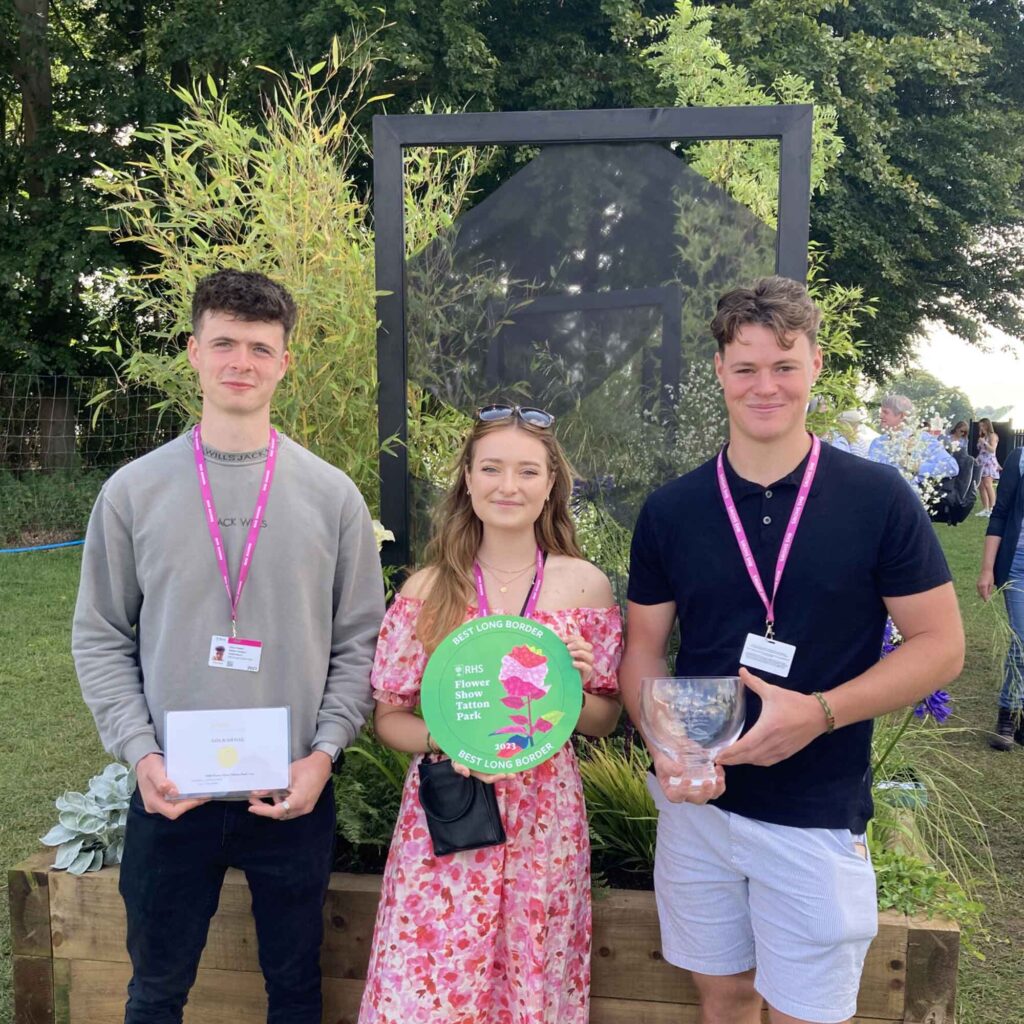Contents
Education for Sustainability is about not just providing expert knowledge of sustainability, but developing graduate skills to apply it to all professions, and empower students to drive system change. This section shares a selection of the new developments in our course portfolio to provide these dynamic educational experiences, and the student and graduate successes EfS leads to.
Dan March, Hallie Abbott Trangmar and Adam Rowley won RHS Gold at the 2023 Flower Show at Tatton Park for their long border.
The border aimed to highlight how modern technology inhibits people’s interaction with nature and featured large wooden screens representing the dominance of technology, alongside serene planting.

The national Brief Cases initiative brings together industry and academia, by offering students sustainability challenges linked to the Global Goals, with prizes for the most innovative responses.
Beckie Campbell-Kemp – gold winner
Project – designs to promote a community event showcasing sustainable practices, supporting small businesses, and encouraging the community to ‘share their wares’.
Gemma Averiss – gold winner
Project – design to strengthen community and connections through a Jubilee street party.
Final year Editorial and Advertising Photography student, Jimmy Fletcher won the prize for his 3 screen film installation capturing a year observing the Northern Gannet colony at RSPB Bempton, Yorkshire.
The installation which brings people closer to often unseen nature was also selected for a show at the Wilson Gallery.

The BA Popular Music course introduced a new level 6 compulsory module, ‘Sustainable Music Practice’ – exploring the relationships between music and sustainability and using systems thinking, triple bottom line approaches.
International Relations students analysed how multinational corporations are performing on social and environmental goals in line with United Nations targets as part of a project in partnership with WikiRate and Principles for Responsible Management Education (PRME). Students used a range of metrics to look at how companies were performing in areas such as carbon dioxide emissions, the gender pay gap and worker’s collective bargaining arrangements.
This report meets our annual reporting commitments on the Sustainable Development Goals (SDGs) as an institutional signatory to the tertiary sector SDG Accord.
Throughout this annual report, we record how the actions and results shown in this report contribute to the delivery of the UN SDGs. The actions on this page contribute to the specific goals marked below.
For more information view the global goals page.